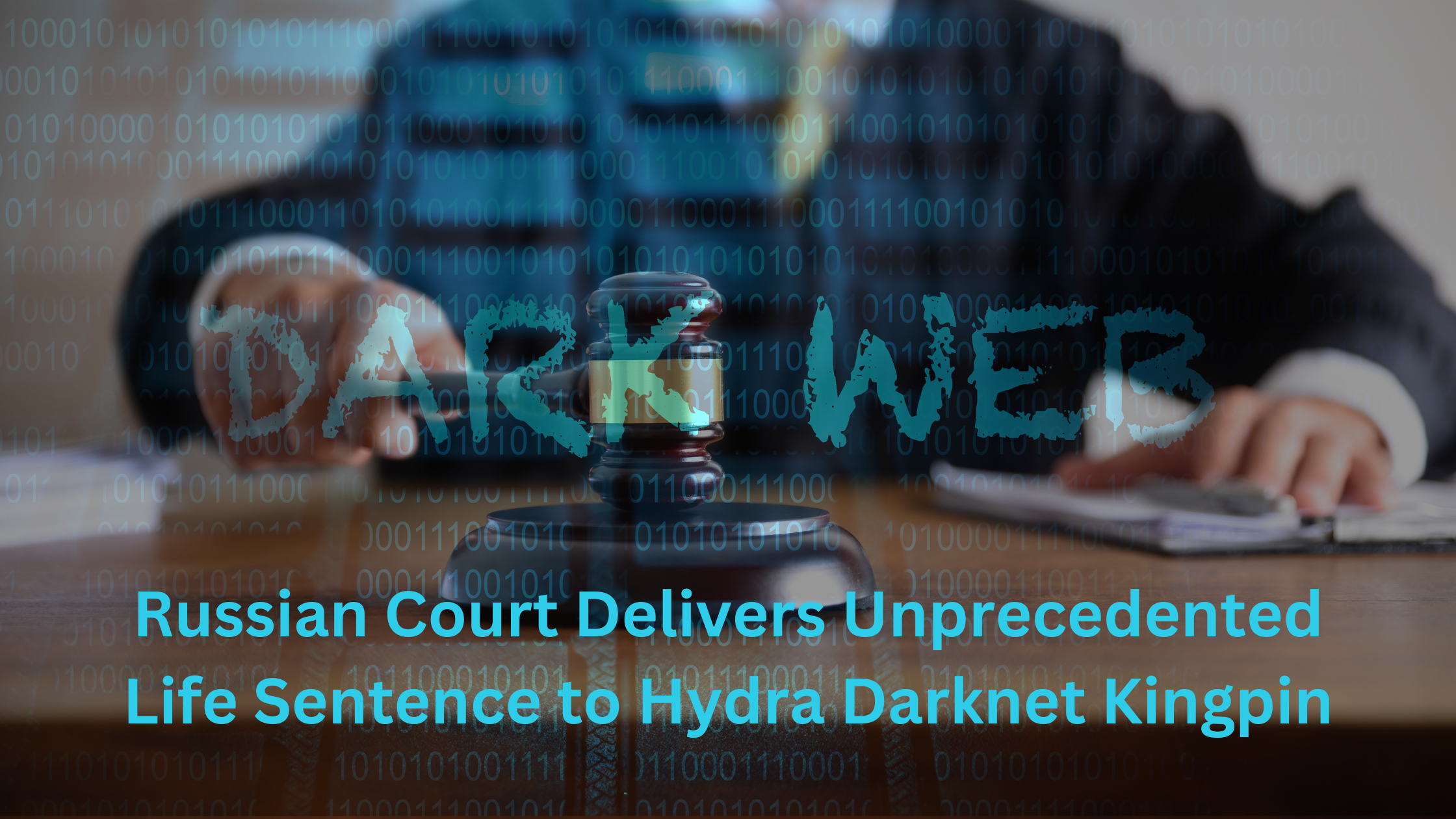Table of Contents
Russian Court Delivers Unprecedented Life Sentence to Hydra Darknet Kingpin
In a landmark ruling that marks a significant shift in Russia's approach to cybercrime, a Moscow court has sentenced Stanislav Moiseyev, the alleged founder of the notorious Hydra darknet marketplace, to life imprisonment. This unprecedented verdict, delivered on December 2, 2024, sends a strong message to cybercriminals operating within Russian borders and beyond.
Hydra, established in 2015, quickly rose to become the world's largest darknet market, specializing in the sale of illegal drugs, stolen credit card data, counterfeit currency, and fake identity documents. The platform's sophisticated operations leveraged the Tor network to maintain user anonymity, making it a formidable challenge for law enforcement agencies worldwide.
The Moscow Regional Court found Moiseyev guilty of organizing a criminal syndicate responsible for manufacturing and distributing illegal drugs across Russia and Belarus. Prosecutors alleged that the group operated a complex network, including clandestine drug production laboratories and storage facilities hidden in homes, garages, and vehicles equipped with secret compartments.
Alongside Hydra's founder, 15 accomplices received prison sentences ranging from 8 to 23 years. The court also imposed substantial fines, with Moiseyev ordered to pay 4 million rubles (approximately $37,780) and his co-conspirators collectively fined 16 million rubles ($151,120). As part of the sentencing, authorities confiscated properties, vehicles, and other assets belonging to the defendants.
The scale of Hydra's operations was staggering. By 2020, the platform boasted an estimated 17 million customer accounts and 19,000 vendor accounts, with an annual turnover exceeding $1.3 billion. Its reach extended far beyond drug trafficking, offering services such as ransomware-as-a-service, hacking tools, and money laundering facilities.
The downfall of Hydra marketplace began in April 2022 when German authorities, in collaboration with U.S. law enforcement agencies, seized the marketplace's servers and Bitcoin assets valued at over $51 million. This action effectively dismantled the platform's infrastructure and marked a significant victory in the global fight against cybercrime.
The Russian investigation into Hydra had been ongoing since 2016, but the international takedown in 2022 accelerated domestic efforts to bring its operators to justice. The case highlights the complex nature of cross-border cybercrime investigations, with Russian authorities expressing frustration at not being informed of the German-led server seizure before it occurred.
The sentencing of Moiseyev and his associates is particularly noteworthy given Russia's historical reluctance to prosecute cybercriminals operating within its borders, especially those targeting foreign entities. This case may signal a shift in policy, possibly in response to increasing international pressure and the growing threat that such criminal enterprises pose to Russia's own interests.
During the investigation and subsequent raids, law enforcement officials seized nearly one metric ton of narcotics and psychotropic substances, underscoring the vast scale of Hydra's drug trafficking operations. The prosecution's case painted a picture of a highly organized criminal enterprise that had infiltrated multiple regions across Russia and Belarus.
The life sentence handed to Moiseyev is exceptionally severe by Russian standards, especially for cybercrime-related offenses. It reflects the gravity with which the court viewed Hydra's activities and their impact on society. The convicts will serve their sentences in special and strict regime penal colonies, known for their harsh conditions.
This case is part of a broader crackdown on cybercrime in Russia. Recently, authorities also arrested Mikhail Pavlovich Matveev, a notorious ransomware affiliate wanted by the FBI for his involvement with groups like Babuk, Conti, and LockBit. These actions suggest that Russia may be taking a more proactive stance against cybercriminals operating within its jurisdiction.
The Hydra case serves as a stark reminder of the ongoing challenges in combating darknet markets and cybercrime. While the platform's demise and the subsequent convictions represent a significant victory for law enforcement, questions remain about the long-term impact on the global darknet ecosystem. As one major player falls, there are concerns that others may emerge to fill the void left by Hydra's collapse.
As the dust settles on this landmark case, the international community watches closely to see if this signals a new era of cooperation in the fight against transnational cybercrime or if it remains an isolated incident in Russia's approach to digital law enforcement.
Visit our website to get cybersecurity updates like this, thesecmaster.com, and our social media page on Facebook, LinkedIn, Twitter, Telegram, Tumblr, Medium, and Instagram and subscribe to receive tips like this.
You may also like these articles:
Anthony Denis
Anthony Denis a Security News Reporter with a Bachelor's in Business Computer Application. Drawing from a decade of digital media marketing experience and two years of freelance writing, he brings technical expertise to cybersecurity journalism. His background in IT, content creation, and social media management enables him to deliver complex security topics with clarity and insight.
